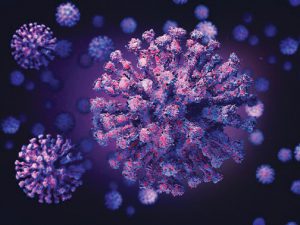Forget the debate over how scared we should be of omicron. What matters is putting our energy into solutions that work — taking action that matters on a personal level and demanding effective actions from world leaders.
Scientists are already scrambling to learn how well our existing vaccines will work against this new coronavirus variant. That can help predict how much benefit might come from speeding up worldwide vaccination and booster campaigns, and whether vaccine passports will protect people or give a false sense of reassurance.
Reports that most omicron cases are mild are understandably reassuring for many individuals — especially those of us who aren’t elderly or immunocompromised and have access to booster shots. But some scientists have frowned on such optimism because of the larger picture. If this thing keeps growing exponentially and infects millions of people in a short time, health systems will collapse, even if a tinier fraction of cases are serious. Cases are rising rapidly in the UK and South Africa, suggesting that omicron has some advantage over delta, the currently dominant coronavirus variant. It might be that it’s inherently more transmissible, or that it’s better able to get past immunity in those who’ve been infected or vaccinated, or some combination of those factors.
Omicron’s genes are weirdly different from previous variants,
appearing to be only distantly related to Delta. No one is sure where it came from — possibly from growing for months in immune-compromised patients, or from leaping
into an animal host and back into humans. It has 21 mutations in the top part of the spike protein, molecular epidemiologist Emma Hodcroft of the University of Bern said in an interview. Some of these mutations are alarming because they’d been observed in earlier variants that were good at evading immunity from vaccines or past infections.
In just a couple of weeks, scientists have accumulated an impressive amount of preliminary data. Some labs assembled mock versions of omicron by genetically manipulating other variants to carry some of the variant’s key mutations, Hodcroft said. Researchers can grow these “pseudo viruses†in petri dishes and test how well they stand up to antibodies extracted from the blood of vaccinated or previously infected people.
A lab in South Africa made headlines with results on the behavior of actual samples of omicron. It found the virus did somewhat evade immunity generated by two shots of the Pfizer vaccine, but was neutralised well by antibodies taken from patients who had been both vaccinated and previously infected with earlier variants.
—Bloomberg
 The Gulf Time Newspaper One of the finest business newspapers in the UAE brought to you by our professional writers and editors.
The Gulf Time Newspaper One of the finest business newspapers in the UAE brought to you by our professional writers and editors.
